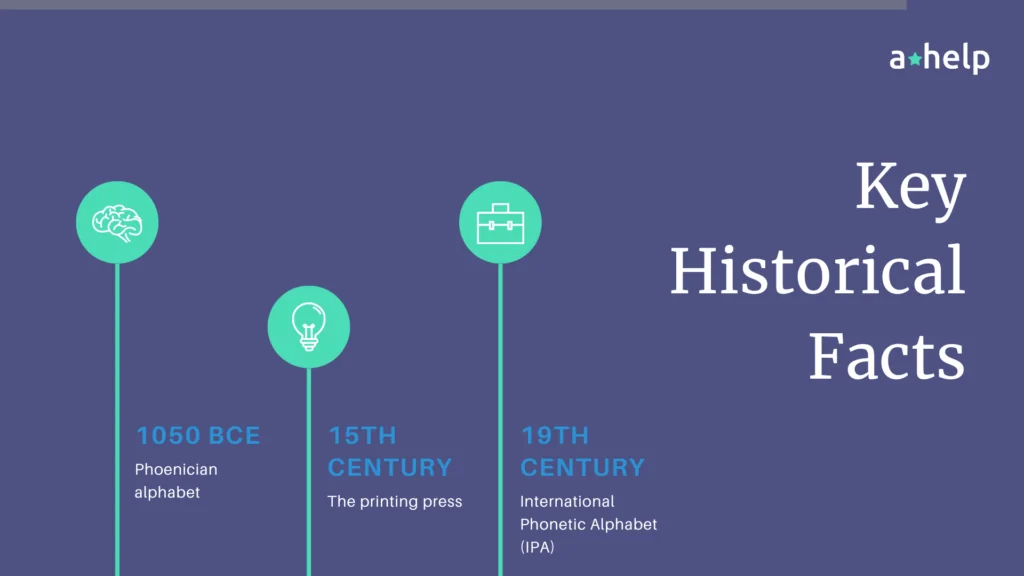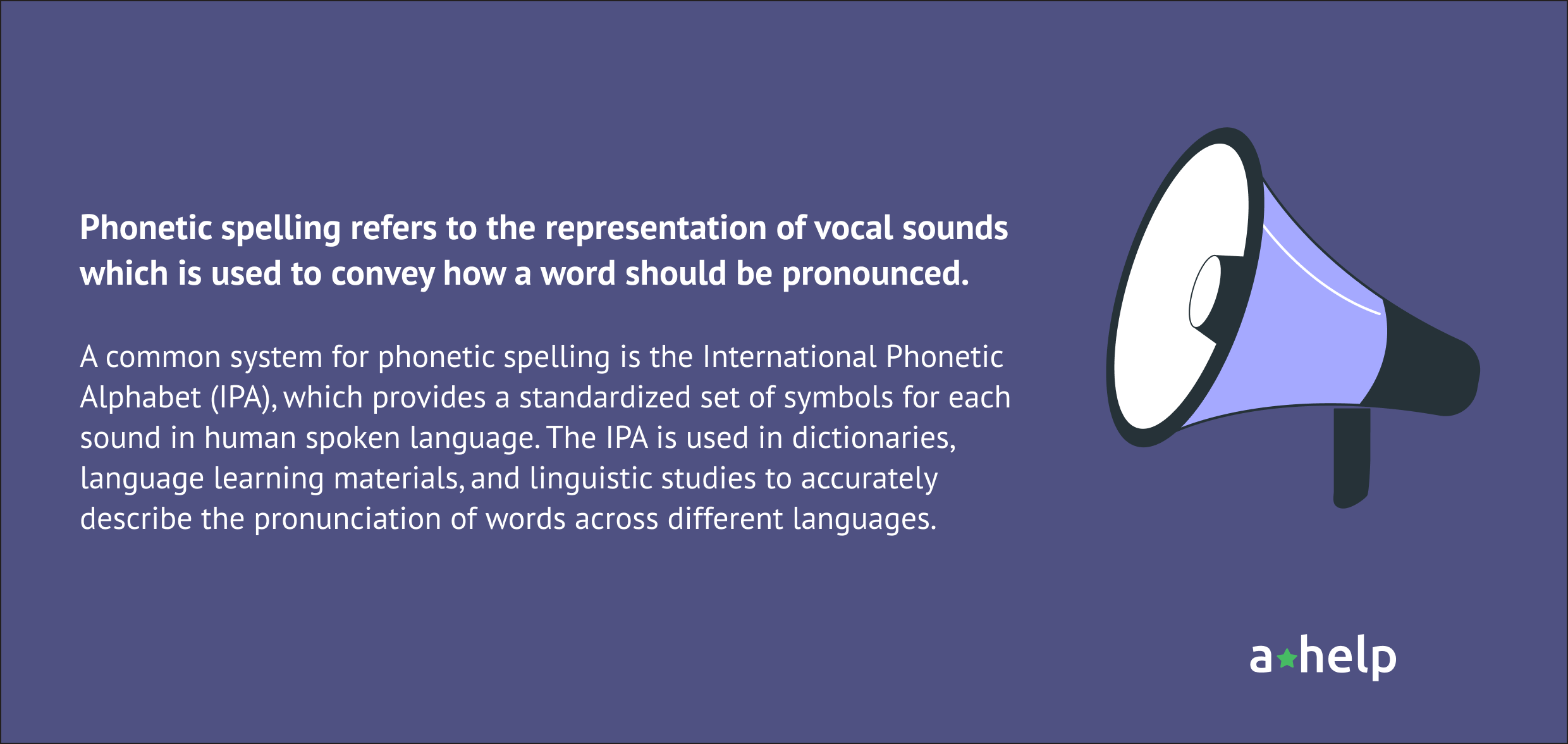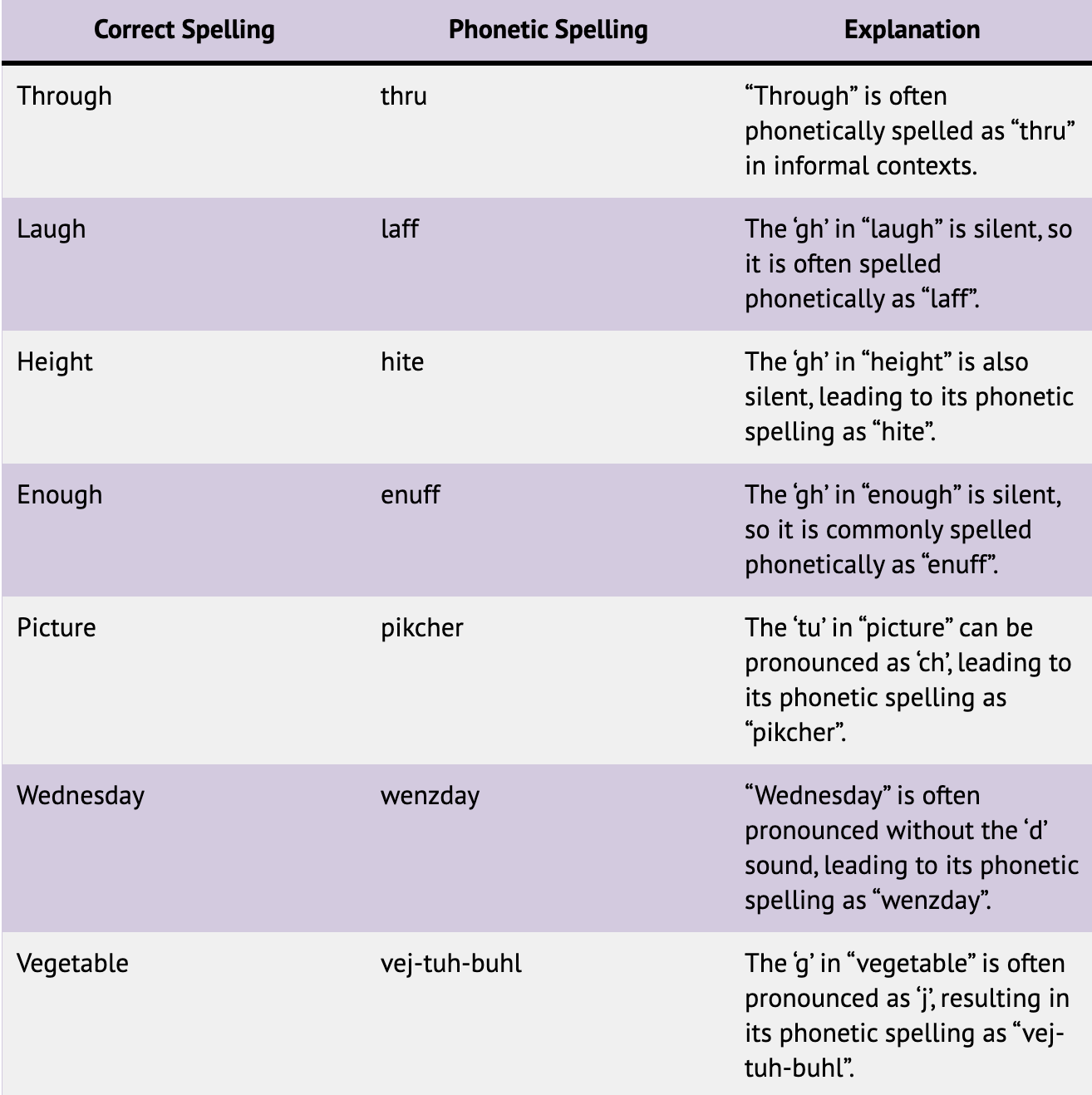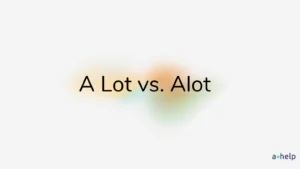Phonetic spelling is a system of representing the sounds of speech with a set of distinct symbols, each representing a specific sound. Unlike conventional spelling, which can often be irregular and inconsistent, phonetic spelling seeks to accurately capture the pronunciation of words. Its ability to accurately represent the sounds of speech makes it an handy tool for learners, educators, and researchers.

✅ AI Essay Writer ✅ AI Detector ✅ Plagchecker ✅ Paraphraser
✅ Summarizer ✅ Citation Generator
The importance of phonetic spelling lies in its ability to simplify complex spelling rules and provide a more intuitive way to learn and understand pronunciation. It is particularly important in language education, where it can help learners understand unfamiliar sounds and improve their pronunciation skills. Moreover, phonetic spelling is used in dictionaries, language textbooks, and linguistic research to provide a standardized way of transcribing speech.
How Did Phonetic Spelling Start?
Phonetic spelling has a rich history that dates back thousands of years, evolving hand-in-hand with the development of written language. Early civilizations, such as the Egyptians and Sumerians, used phonetic elements in their writing systems to represent spoken sounds. However, it was not until the development of alphabetic writing systems that phonetic spelling began to take a more systematic form.

One of the earliest examples of a phonetic alphabet is the Phoenician alphabet, developed around 1050 BCE. This alphabet consisted of 22 consonant letters, with no vowels represented, and served as the basis for many other alphabets, including Greek and Latin.
The Greeks further refined the alphabet and added vowel letters and developing a more phonetic spelling system. This innovation, interestingly enough, influenced the development of Western writing systems.
During the Middle Ages, European languages began to standardize their spelling systems, often based on the phonetic principles of their respective languages. However, the printing press, invented by Johannes Gutenberg in the 15th century, played a significant role in the standardization of spelling, as printers sought to establish consistent spelling conventions for mass-produced texts.

In the 19th century, the development of the International Phonetic Alphabet (IPA) provided a standardized system for representing the sounds of all human languages. This system, which continues to be used today, has greatly influenced the study of linguistics and language teaching.
Types of Phonetic Spelling
Phonetic spelling comes in various forms, each with its own set of rules and conventions. One common type is “broad phonetic spelling,” which aims to represent the pronunciation of words in a simplified way. This type often uses familiar letters and symbols to indicate sounds, making it easier for non-linguists to understand and use. For example, “fish” might be spelled as “fissh” to emphasize the elongated ‘s’ sound.
Second one is “narrow phonetic spelling,” which is more detailed and precise. It uses specialized symbols from the International Phonetic Alphabet (IPA) to represent each individual sound in a word. This type is commonly used in linguistics and language learning to provide a precise and universally understood way of indicating pronunciation.
A third type of phonetic spelling is “non-standard phonetic spelling,” which involves using unconventional or invented spellings to represent speech. This type is often used for creative or humorous purposes, such as representing accents or dialects in literature or dialogue.
The various types of phonetic spelling serve different purposes and audiences, but they all share the goal of making pronunciation more accessible and understandable.
Examples of Phonetic Spelling
Phonetic spelling can vary widely based on regional accents and dialects, leading to different ways of representing the same word phonetically. If you still struggle with it, you can use a free grammar checker to make things go smoother. Here are ten examples of words spelled phonetically:

Other common examples are:
- February – feb-roo-ary: the ‘r’ in “February” is often pronounced, leading to its phonetic spelling as “feb-roo-ary”
- Colonel – kur-nl: “colonel” is pronounced as if it were spelled “kurnel”, leading to its phonetic spelling as “kur-nl”
- Wednesday – wenz-dee: Another phonetic spelling for “Wednesday” without the ‘d’ sound is “wenz-dee”.
Phonetic Spelling in Education and Culture
Both in education and culture, phonetic spelling plays a viatl role by improving literacy, language learning, and preserving dialects. In academic environment, phonetic spelling helps learners understand and pronounce words correctly, especially in languages with complex spelling rules like English. By providing a more intuitive way to learn pronunciation, phonetic spelling enhances reading skills and overall language proficiency.
As to the cultural contexts, there, phonetic spelling can preserve unique dialects and accents, so that they are accurately represented in literature and media. It also facilitates cross-cultural communication by providing a standardized way to transcribe spoken language. For example, in language revitalization efforts, phonetic spelling can be used to document and teach endangered languages, preserving them for future generations.
FAQ
Follow us on Reddit for more insights and updates.





Comments (0)
Welcome to A*Help comments!
We’re all about debate and discussion at A*Help.
We value the diverse opinions of users, so you may find points of view that you don’t agree with. And that’s cool. However, there are certain things we’re not OK with: attempts to manipulate our data in any way, for example, or the posting of discriminative, offensive, hateful, or disparaging material.